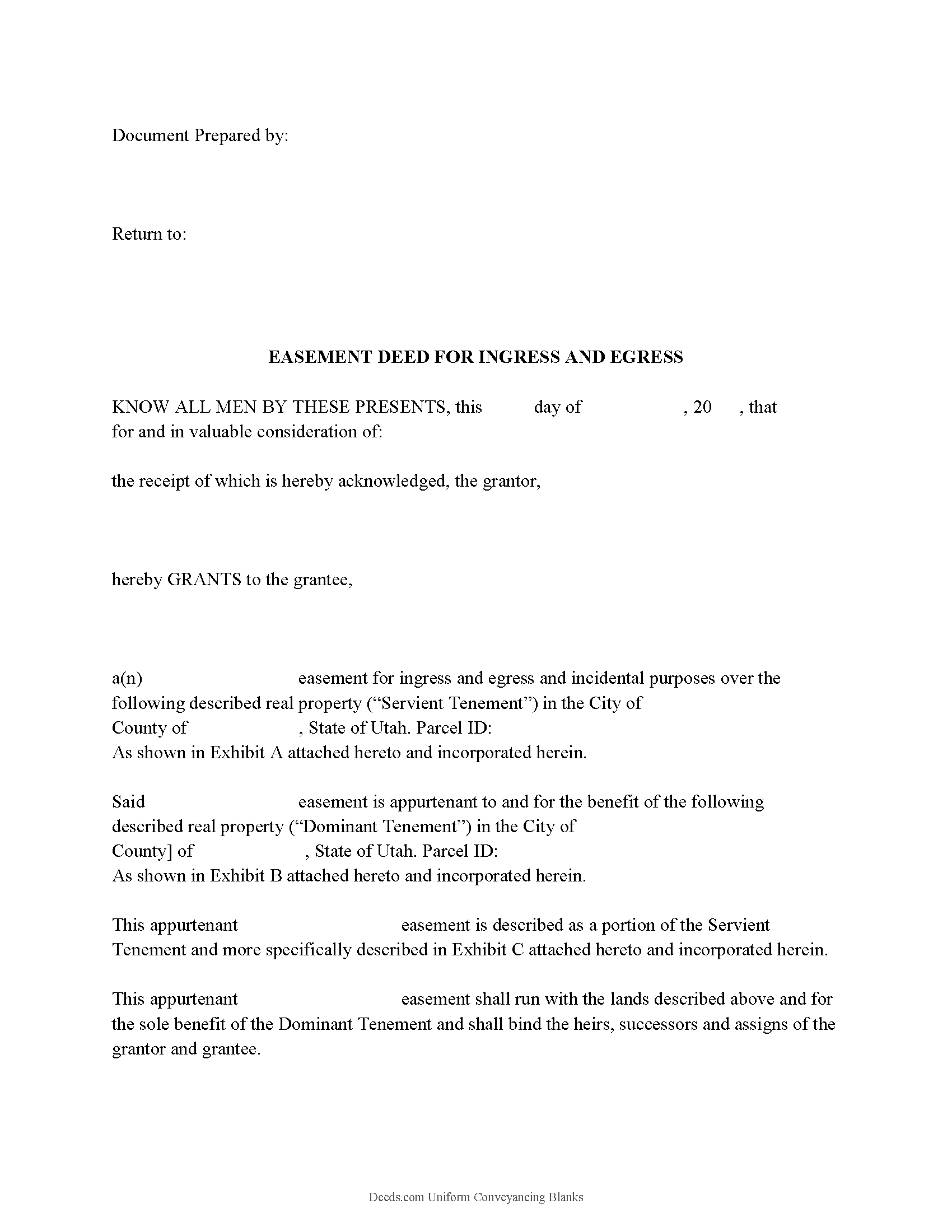Download Utah Easement Deed Legal Forms

Utah Easement Deed Overview

An easement is a non-possessory interest in land that allows an easement holder to use another's real property for a specific purpose. Easements can be either appurtenant or in gross. An easement deed is the instrument that creates the rights contained in an easement, and should therefore specify the scope and duration of the easement. A solar easement is statutorily defined as a right, whether or not it is stated in the form of a restriction, easement, covenant, or condition, in any deed, will, or other instrument executed by or on behalf of any owner of land or solar skyspace for the purpose of ensuring adequate exposure of a solar energy system (57-13-1). An easement of this type is required to be in writing. Prescriptive easements of different types, such as an easement for a livestock trail, can also be established in Utah.
In order for an easement deed to be considered for recordation by a county recorder in Utah, it must be signed and acknowledged by the grantor and accompanied by a certificate of acknowledgment or proof of execution that is signed by the officer taking the acknowledgment (57-3-101). The proof of execution of an easement deed can also be made by a subscribing witness (57-2-10). Notarial acts in this state can be performed by a judge or court clerk having seal, a notary public, or a county clerk or county recorder. If an instrument is notarized out of state, the notarial act can be performed by any of the officers listed in 57-2a-3 or by any other person who is authorized to perform notarial acts in the state where the act is performed (57-2a-3).
An easement deed in Utah that has been executed, acknowledged, and certified in a manner consistent with the Utah Statutes will, from the time of recording with the appropriate county recorder, impart notice to all persons of the contents of the deed. Easement deeds should be recorded in the county where the property subject to the easement is located. If an easement deed is not recorded, it will still be valid between the parties to the deed and those who have notice of it (57-3-102). Additionally, an unrecorded easement deed will be void against a subsequent purchaser of the same property, or portion of it, if the subsequent purchaser purchased the property in good faith and the subsequent purchaser's document was recorded first (57-3-103).
(Utah ED Package includes form, guidelines, and completed example)